M. Night Shyamalan latest mystery thriller film is a big gay apocalypse…
“A part of humanity has been judged.”
Winter is typically not the time of year when movie studios choose to unleash horror projects to the masses, yet here we are in 2023, and audiences have already fallen for M3GAN and now Knock at the Cabin. Unlike M3GAN, which spewed camp and hilarity in the form of a robotic doll, Knock at the Cabin takes an emotional approach to realistic fears. Directed by M. Night Shyamalan, Knock at the Cabin might be the helmer’s most restrained film in years.
Released by Universal Pictures, Knock at the Cabin checks many of the boxes in Shyamalan’s filmography. There’s an unsettling backdrop, this time in the form of a remote cabin in the woods. There are long, often drawn-out conversations between the lead characters about spiritualism and existential crisis. There’s Shyamalan’s signature application of a twist ending that many viewers will see coming. However, this time around, it’s for the gays.
Knock at the Cabin immediately starts with Dave Bautista as Leonard, a stranger who happens upon a young girl named Wen as she collects grasshoppers in front of her parents’ vacation rental cabin. In an opening scene reminiscent of the famous flower sequence in 1931’s Frankenstein, Leonard seems harmless until Wen realizes he poses a threat after she divulges some personal information about her two dads. All hell breaks loose when Wen runs into the cabin to warn her fathers as a gang of four knocks at the house to be let in.
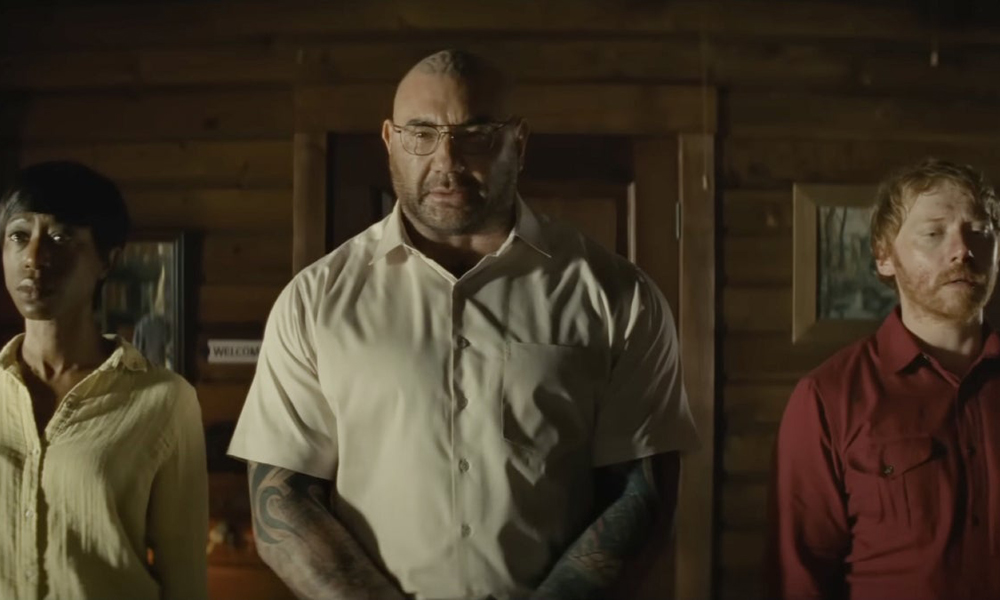
Along with Leonard is a team of misfit doomsdayers played by Nikki Amuka-Bird, Abby Quinn, and Harry Potter alum Rupert Grint. The four force their way into the remote cabin carrying a warning of an impending apocalypse. Wen’s dads Eric (Jonathan Groff) and Andrew (Ben Aldridge), do everything they can to stave off the advances of the menacing group. They are quickly outnumbered and regulated to becoming prisoners within their holiday.
Leonard and team have had visions of an apocalypse of biblical proportions, one that can only be averted if Eric and Andrew make a sacrifice from their family unit. Flashbacks of Eric and Andrew’s relationship, their adoption of Wen, and arguments over homophobia and religious upbringing coerce themselves into focus throughout their imprisonment. The two parents do everything they can to fight back and stall the doomsdayers from forcing them to make a choice that could change the course of history.
A ridiculous premise built on religious allegory and emotionally charged outbursts, Knock at the Cabin lights a match to homophobia and ignites conversations surrounding what it means to be a family. One by one, each member of the seemingly defiant cult makes a sacrifice of their own, confusing Eric and Andrew as to what is true and what is conspiracy. While Andrew is steadfast in his resolve and won’t take any of their nonsensical theories seriously, cracks begin to form in Eric and Andrew’s relationship when one is logical while the other takes the emotional route. To survive, the two men must stick together. But in M. Night Shyamalan’s world, it isn’t as always as simple as that.
Knock at the Cabin boasts an ensemble of convincing performances and a bottled setting that takes place almost entirely within the confines of the remote cabin’s interiors. Religion, sexuality, family, love, and connection are all explored in this challenging psychological thriller based on the novel by Paul G. Tremblay. Shyamalan does a fantastic job of tricking his audience along the way, appealing to personal backgrounds and experiences. Though presented as part of the horror film genre, the movie navigates paths of acceptance and selfishness through the eyes of its two gay leads.
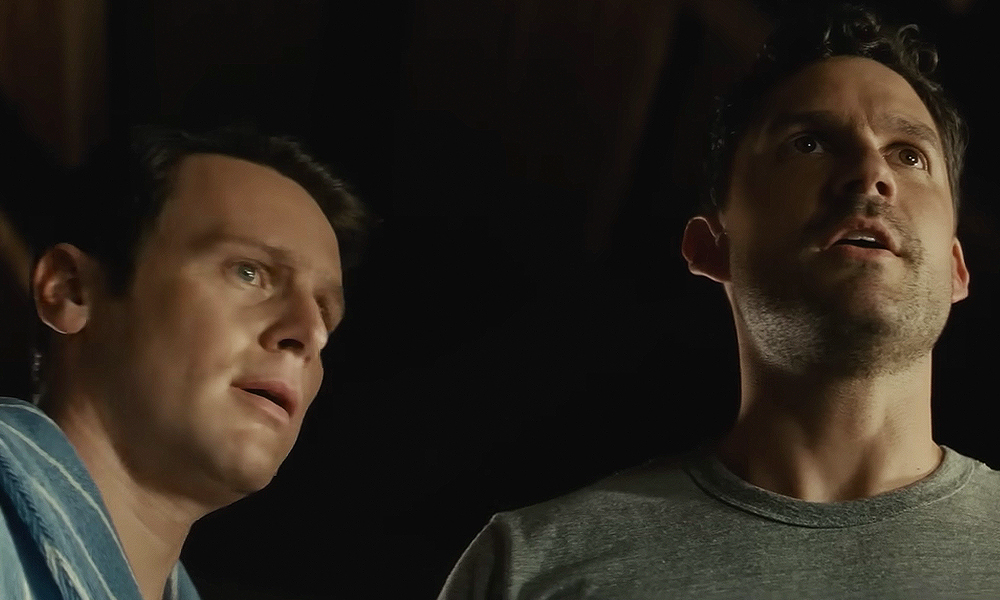
Dave Bautista and Ben Aldridge are impressive in a film that asks a lot of two men to be at odds with one another throughout. Aldridge, in particular, shines brightest when his character fears he’s the only sane one left of the bunch. Shyamalan does not shy away from depicting the winding roads of gay marriage through flashbacks of Eric and Andrew’s life together before and after they adopt Wen. Of particular note is the archaic process two men have to go through to adopt a baby overseas, where Andrew pretends to be related to Eric’s fictional wife in order for both men to be present for their daughter’s birth.
Family and the bond it forms is in full focus in Knock at the Cabin, set against the backdrop of unexplainable beliefs and “Boogie Shoes” by KC and the Sunshine Band. The movie is terrifying at certain moments, deceiving in others, but often pivots back to university dorm-style conversations about divine intervention. It’s nothing new for a filmmaker thrust into the spotlight for his twist endings, of which this one is no different. Except the twist can be seen from miles away while remaining manipulative in its execution. It’s not the worst Shyamalan has offered up to his audiences, but it pales in comparison to some of his earlier work.

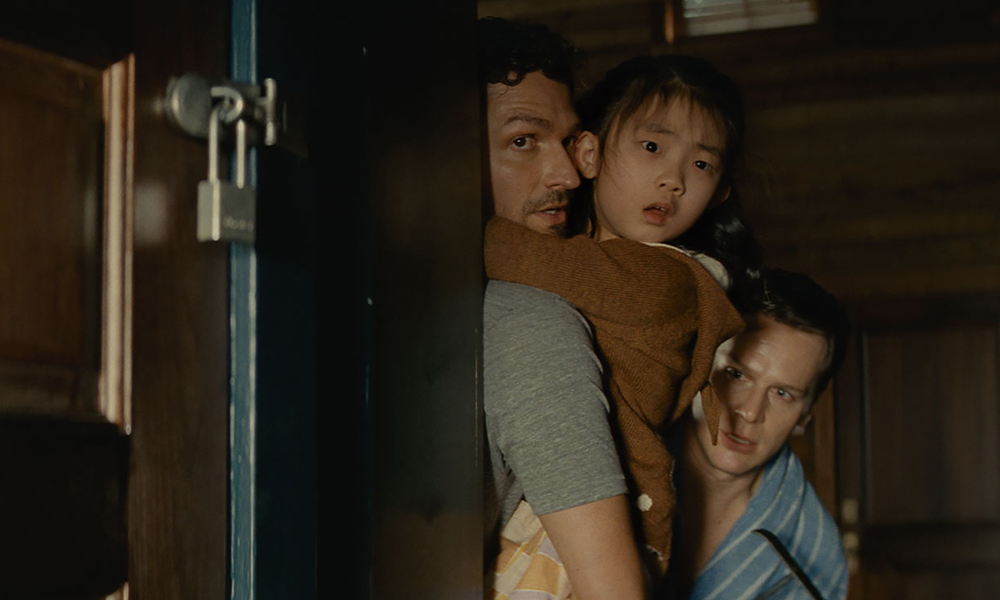
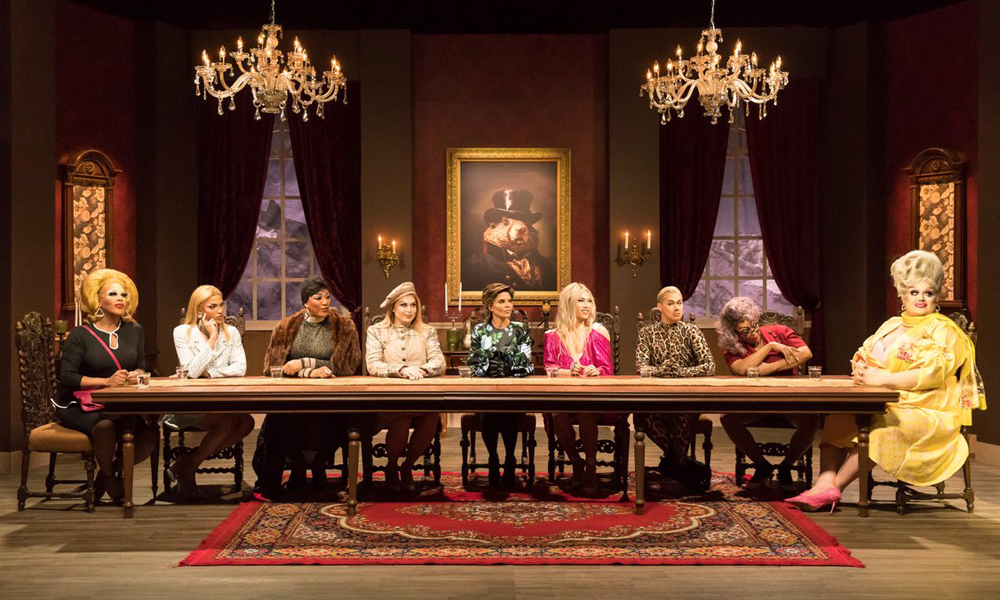
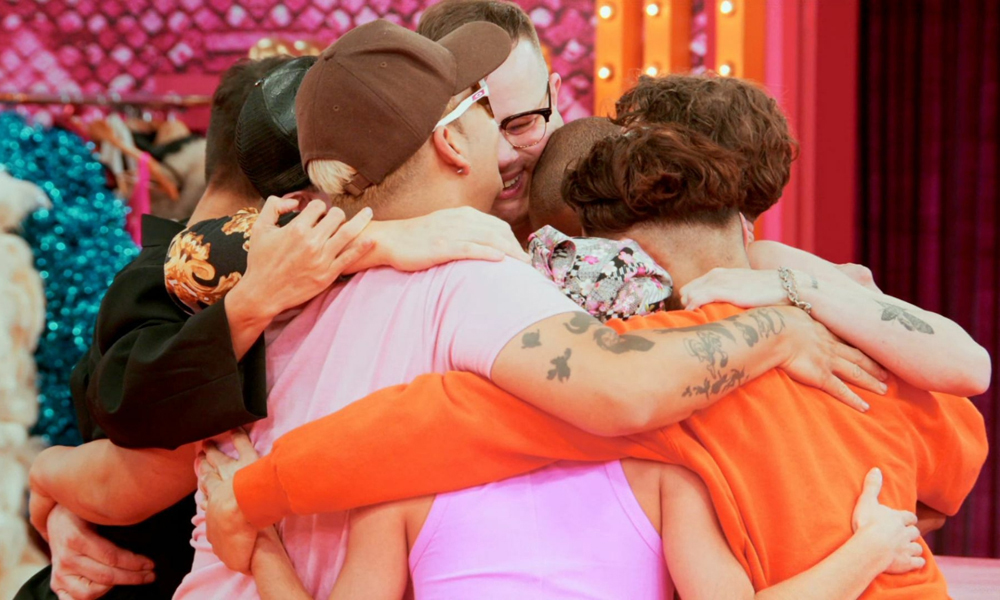


POST A COMMENT